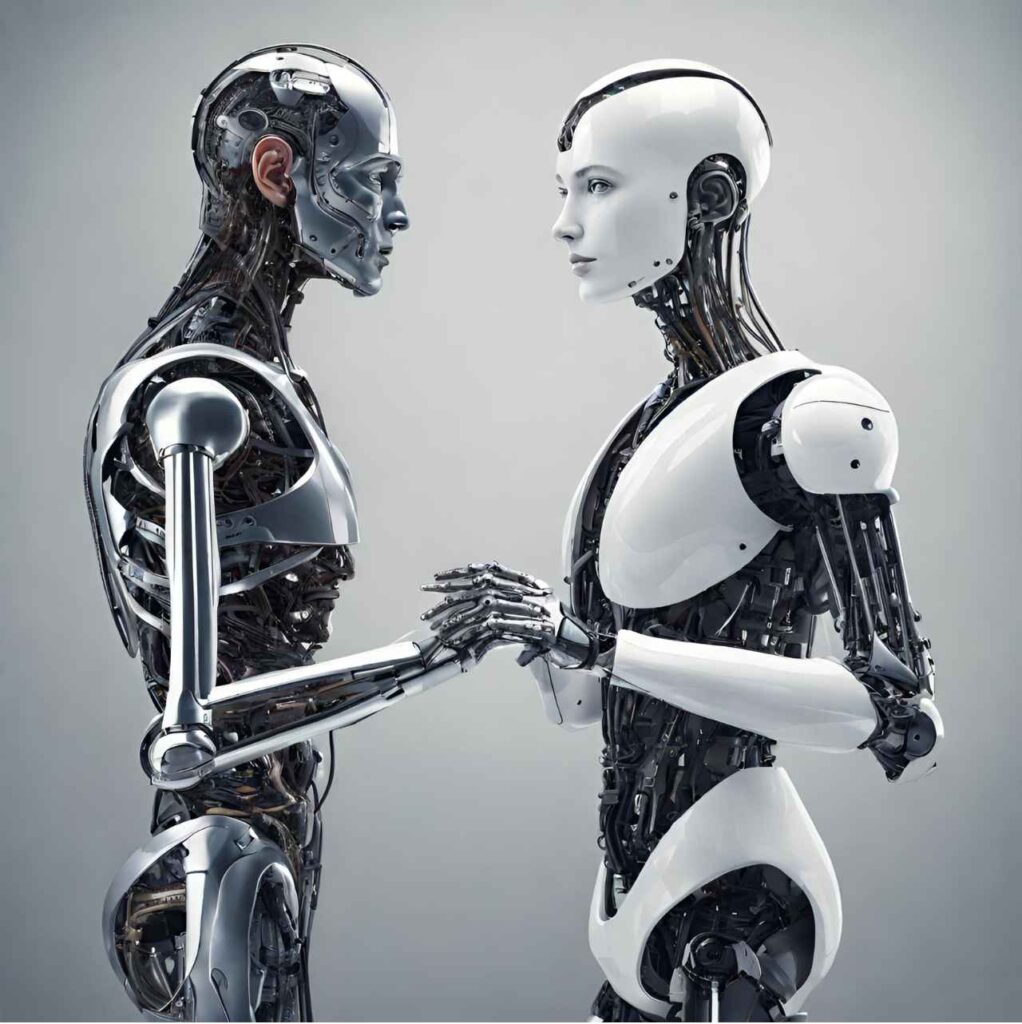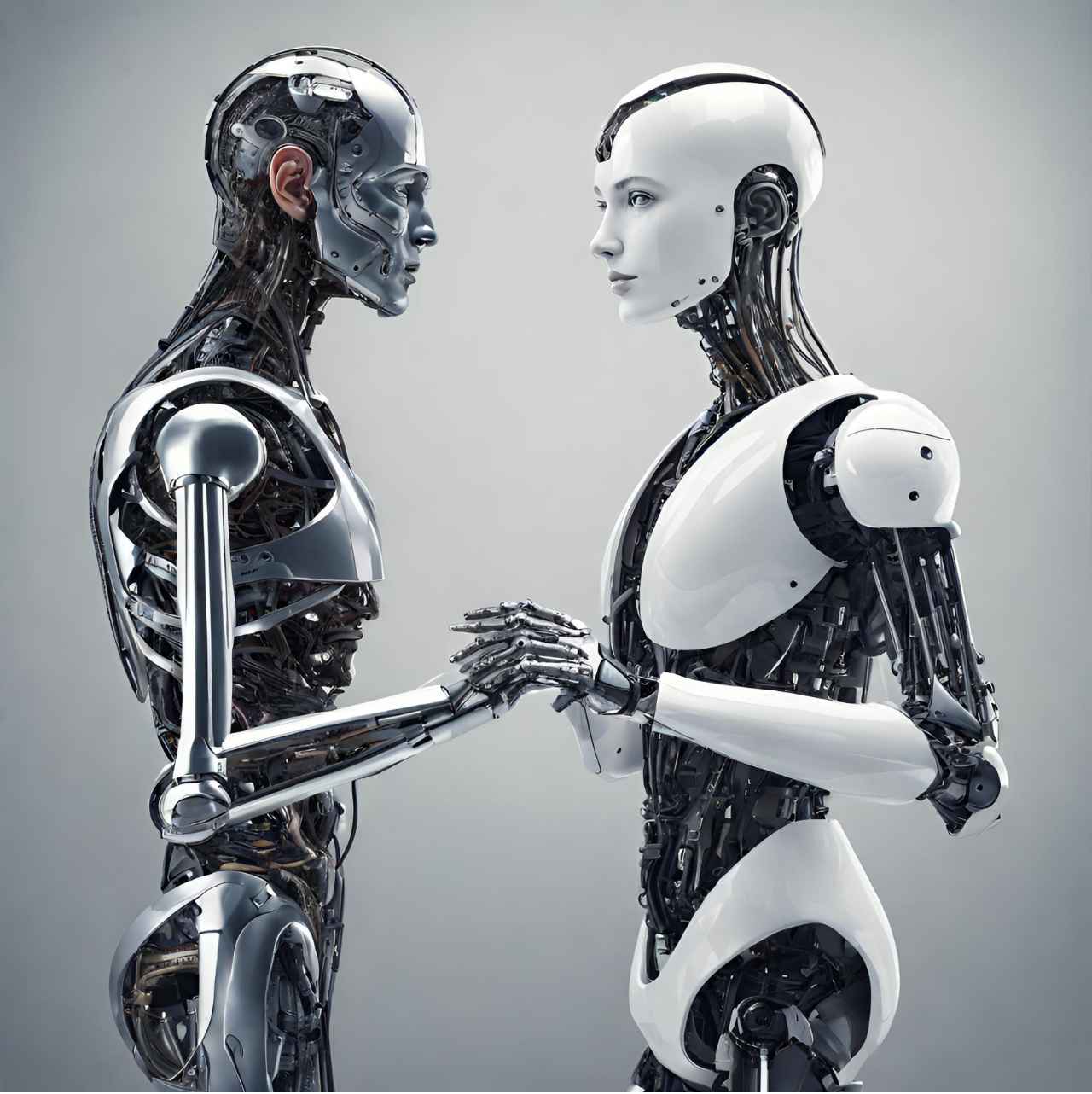
Table of Contents
Introduction
Artificial Intelligence (AI) has been a buzzword in recent years, with advancements that have left us in awe of its capabilities. But a fundamental question remains: Can AI replace human intelligence?
In this in-depth exploration, we’ll delve into the nuances of AI and human intelligence, discussing whether AI could potentially replace the complex capabilities of the human mind. Let’s navigate this intricate terrain, understanding the boundaries, and uncovering the possibilities.
Understanding AI and Human Intelligence
Defining AI and Human Intelligence
To embark on this journey, it’s crucial to define our terms. Artificial Intelligence, often referred to as AI, is the science of developing computer systems that can perform tasks that typically require human intelligence. These tasks encompass problem-solving, learning from experience, and adapting to new situations.
Human intelligence, on the other hand, is the cognitive ability unique to humans that encompasses a wide range of skills, including reasoning, problem-solving, emotional understanding, creativity, and intuition. It’s a product of complex biological processes within the human brain.
Comparative Analysis of Capabilities
Now that we have our definitions in place, let’s compare the capabilities of AI and human intelligence.
AI Strengths:
- Data Processing and Analysis: AI excels in processing vast amounts of data quickly and accurately. This is particularly valuable in data-driven industries like finance and healthcare.
- Automation and Efficiency: AI systems can perform repetitive tasks tirelessly, leading to increased efficiency and productivity.
- Pattern Recognition: AI is exceptional at identifying patterns in data, which is valuable in fields such as image and speech recognition.
AI Limitations: - Lack of True Understanding: While AI can process data and recognize patterns, it lacks true comprehension or understanding of the information.
- Creativity and Intuition: AI struggles with tasks that require creativity, intuition, or thinking ‘outside the box.’
- Emotional Intelligence: AI lacks emotional intelligence, the ability to understand and respond to human emotions effectively.
Will Artificial Intelligence Replace Human Intelligence?
AI’s Progress and Potential
AI has come a long way since its inception. Early AI systems were limited in scope and capability, but recent advancements have been remarkable. Deep learning, neural networks, and natural language processing have propelled AI into areas once considered purely human territory.
AI’s potential is enormous, with applications ranging from healthcare diagnosis to autonomous vehicles. However, does this mean it can replace human intelligence entirely?
Job Displacement and the Workforce
One of the most common concerns is the fear of job displacement. As AI systems become more sophisticated, there’s a legitimate worry that they might replace certain human jobs. Automation, powered by AI, has already impacted industries like manufacturing and customer service.
The question arises: Is AI replacing human requirements, or can it be harnessed to augment human capabilities instead? We’ll explore this topic further in the following sections.
Do You Need to Fear Artificial Intelligence?
AI, while powerful, is a tool created and controlled by humans. Whether you need to fear AI depends on how it’s developed and used. Let’s address some common fears:
- Job Displacement: While some jobs may be automated, AI can create new opportunities in fields like AI development, maintenance, and data analysis.
- Privacy Concerns: AI’s ability to process vast amounts of data raises privacy concerns. Responsible data handling and regulations can mitigate these risks.
- Bias and Fairness: AI algorithms can inadvertently perpetuate bias. Ensuring diversity in AI development teams and rigorous testing can help address this issue.
In essence, the fear of AI should be transformed into a cautious approach to its development and utilization.
Can Artificial Intelligence Have Dreams and Desires?
The idea of AI having dreams and desires may sound intriguing but requires a deeper examination of AI’s fundamental nature. AI operates based on algorithms and data; it lacks consciousness, emotions, or desires.
AI can simulate behaviors and responses, but this is fundamentally different from human dreams and desires. AI’s “desires” are rooted in programmed objectives and are driven by data analysis, not genuine aspirations.
In essence, AI lacks the essential consciousness and subjective experience required for dreams and desires.
The Limits of Artificial Intelligence
While AI has made impressive strides, it’s essential to recognize its limitations, which stem from its fundamental nature:
AI’s Cognitive Boundaries
- Understanding Context: AI struggles to understand context as effectively as humans do. It may misinterpret nuanced situations.
- Common Sense Reasoning: AI often lacks common-sense reasoning abilities, leading to illogical conclusions in certain situations.
- Ethical Decision-Making: AI doesn’t possess moral or ethical principles. It makes decisions based on programmed rules and data.
In essence, AI lacks the holistic, intuitive understanding that human intelligence brings to the table.
Artificial Intelligence Lacks Emotional Intelligence
Emotional intelligence, the capacity to perceive, understand, manage, and use emotions effectively, is a quintessential aspect of human intelligence. AI, however, falls short in this domain:
- Empathy: AI can mimic empathetic responses, but it doesn’t genuinely feel emotions or understand human feelings.
- Emotion Recognition: While AI can recognize facial expressions and tones of voice, it can’t comprehend the depth of emotions behind them.
- Social Interaction: AI may engage in conversations, but its responses are based on patterns and data, lacking genuine emotional engagement.
In scenarios requiring emotional understanding and nuanced interactions, AI cannot replicate the depth of human emotional intelligence.
The Future of Artificial Intelligence and Human Intelligence
Symbiosis or Supremacy?
The future relationship between AI and human intelligence is a topic of intense speculation. Will AI eventually surpass human capabilities, or will they coexist symbiotically? Here are some possibilities:
- Complementary Roles: AI can enhance human capabilities by automating repetitive tasks and providing data-driven insights, allowing humans to focus on creative and strategic aspects of work.
- Ethical Considerations: As AI becomes more advanced, ethical questions surrounding its use, control, and regulation will become increasingly important.
- Education and Upskilling: Preparing the workforce for an AI-driven future will involve education and upskilling to ensure humans remain relevant in a changing job landscape.
The balance between AI and human intelligence will likely be defined by responsible development, ethical considerations, and the recognition of the unique strengths each brings to the table.
Artificial Intelligence Can Only Work with Inputted Data
A fundamental characteristic of AI is its dependence on data. AI systems operate based on the data they are trained on. Here’s why:
- Training Data: AI algorithms require large sets of training data to learn patterns and make predictions or decisions.
- Data Quality: The accuracy and quality of input data significantly impact AI’s performance. Biased or incomplete data can lead to biased AI outcomes.
- Generalization: AI can only make decisions or predictions based on patterns within the training data. It cannot extrapolate beyond what it has been exposed to.
For AI to function effectively, a continuous stream of relevant and high-quality data is essential. This data is the lifeblood of AI systems.
Can AI Replace Human Curiosity?
Curiosity is a uniquely human trait. It drives exploration, innovation, and the pursuit of knowledge. While AI can process vast amounts of information, it doesn’t possess genuine curiosity. AI operates based on predefined algorithms and objectives.
Human curiosity involves asking questions, seeking answers, and exploring the unknown. AI can assist in this process by providing data and insights, but it cannot replicate the innate curiosity that propels human discovery.
In essence, AI can augment human curiosity by providing tools and information, but it cannot replace the intrinsic drive to explore and learn.
Conclusion
In the quest to determine whether Artificial Intelligence can replace human intelligence, we’ve explored the boundaries and potential of AI. While AI excels in specific tasks, it falls short in areas that require understanding, creativity, emotional intelligence, and genuine curiosity – all hallmarks of human intelligence.
Rather than fearing AI, we should embrace it as a tool that can enhance our capabilities. Responsible development and ethical considerations will play a crucial role in shaping the future relationship between AI and human intelligence.
Please Note: You can also read this 10 Best Movies Based On AI
